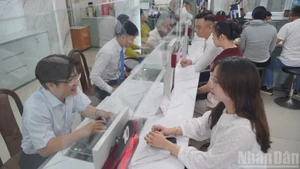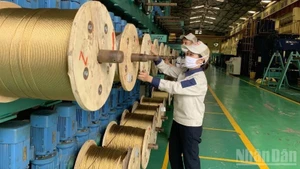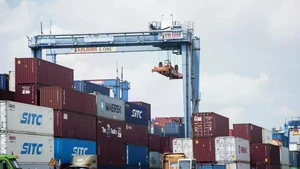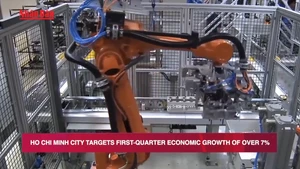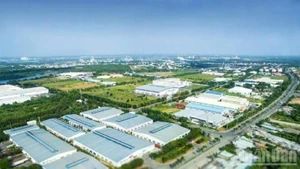Taking advantage of export opportunities, and bringing benefits to farmers and businesses, while still ensuring national food security, is the consistent direction of the Government, ministries, branches and localities, during the current period.
By the end of July 2023, Vietnam exported about 4.84 million tonnes of rice, worth 2.58 billion USD, an increase of 29.6% over the same period in 2022. It is expected that for the whole year 2023, Vietnam's rice export revenue could reach 4 billion USD.
Domestic and export prices increase
Recently, export rice prices have continuously increased, Vietnam's export rice prices once reached 638 USD/tonne, causing domestic rice prices to increase day by day. In Ca Mau Province, for the first time, rice growers witnessed the price of summer-autumn rice being higher than the winter-spring crop.
Through a review by the industry and trade sector of Ca Mau Province, the current rice price is between 600, to over 1,000 VND/kg, higher than the winter-spring crop.
According to the Director of the Provincial Department of Industry and Trade Nguyen Chi Thien, the increase in rice prices is an opportunity for the domestic rice industry to have a breakthrough in rice export, improve quality, develop brands, and expand markets. That is also an opportunity for rice growers, especially people in the Mekong Delta in general and Ca Mau farmers in particular, to increase their income in the same farming area.
In Soc Trang Province, rice export enterprises increased their purchases, on the one hand, to meet signed orders, and on the other hand to have reserves for the next contracts.
In the first seven months of 2023, rice exports in the whole province reached a value of 236 million USD, an increase of 12.53% over the same period in 2022. Because Vietnam's rice export price, from the end of July 2023, has continuously increased, businesses have to adjust the rice purchasing price, increasing it by 200-600 VND/kg, depending on the time.
Flexibility in response to rice export market developments
According to the Prime Minister's direction, the current task is to ensure national food security and promote rice exports, while not "shocking" the domestic market or pushing up domestic consumer prices too high, because it will affect a group of vulnerable people. These three issues are currently being implemented by the Ministry of Agriculture and Rural Development, the Ministry of Industry and Trade and localities.
In 2022, Vietnam exported 7.1 million tonnes of rice, there is still room for Vietnam in 2023. Currently, Vietnam needs to pay attention to the supply-demand issues, which are price pushing, storage, and deposits, causing a great impact on the rice market.
In fact, in key rice production localities, the current time not only brings opportunities but also poses many challenges in the production chain. As in Ca Mau, grasping the high demand of the market and the shortage of supply, recently, the situation of rice collection in areas in the province has been competitive, especially in areas where farmers have not yet signed output offtake contracts with enterprises.
In that context, the industry and trade sector in Ca Mau recommended that rice exporters proactively monitor the market situation, fully evaluate opportunities and risks to develop transaction plans and sign suitable contracts, ensuring export efficiency and contributing to the consumption of all paddy and rice goods for farmers at favourable prices.
Regarding rice export activities in Soc Trang Province, Director of the Provincial Department of Industry and Trade Vo Van Chieu said, that currently there are two enterprises granted certificates of eligibility for rice export business, namely Thanh Tin Trading and Services Company Limited and Tien Phat Nong Company Limited.
To both serve the task of exporting rice well and implementing solutions to stabilise domestic prices, the Department has asked these two units to provide information on the rice reserve situation according to regulations and have solutions to ensure the supply of the reserved rice when rice prices fluctuate abnormally, he added.


